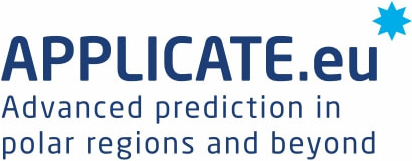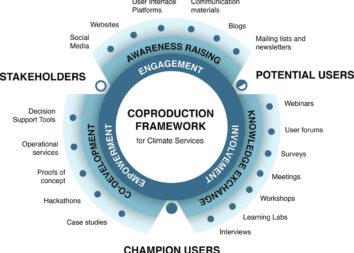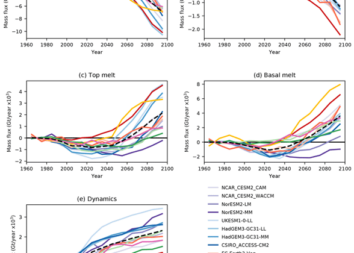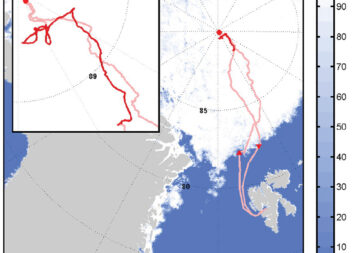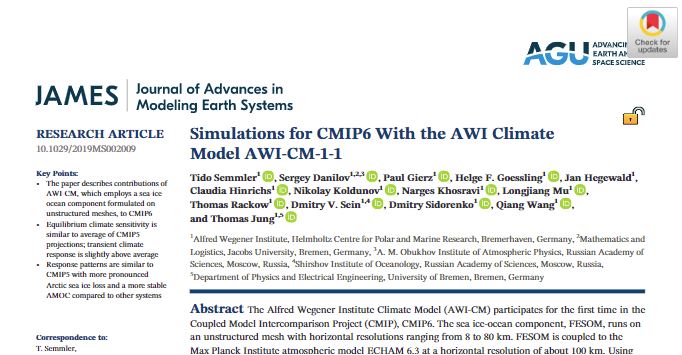
Simulations for CMIP6 With the AWI Climate Model AWI‐CM‐1‐1
24. August 2020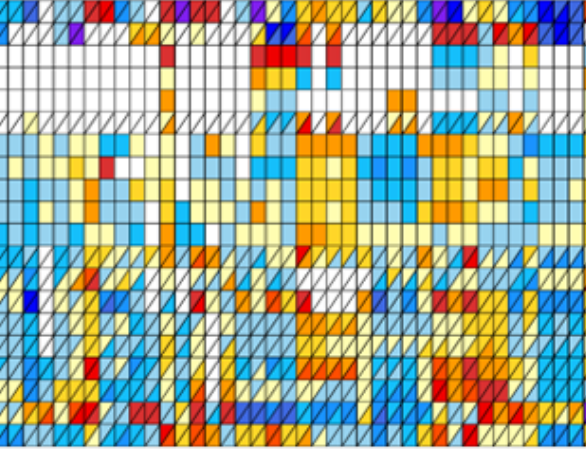
Earth System Model Evaluation Tool
5. December 2020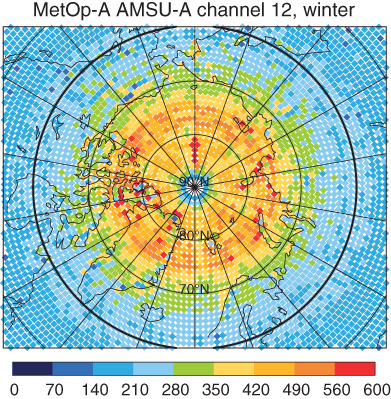
This special collection gathers a series of studies highlighting the impact of polar observations on predictive skill in polar regions and beyond, from weather to climate time scales. Some of these studies rely on the extensive numerical experimentation performed in the framework of the Year of Polar Prediction (YOPP) of the World Meteorological Organization and of the H2020 project APPLICATE. This coordinated effort aimed to understand how to increase the uptake of existing polar observations in numerical weather prediction and climate prediction systems, and to guide the design of future observing systems in polar regions. It relied on so-called Observing System Experiments (OSEs) in which certain observations are withdrawn (denied) from the data assimilation system used to create initial conditions for weather forecasts. As part of this effort, coordinated OSEs in which observations were denied in polar regions, were performed for the first time at several operational weather centres, including ECMWF, Environment and Climate Change Canada, DWD and Met Norway. The results were analysed to understand the impact of observations on short and medium-range forecast skill. These OSEs covered the Special Observing Periods of YOPP in both the Arctic and the Antarctic. This special issue also welcomes OSEs studies covering longer time scales (e.g., those analyzing the impact of degrading initial oceanic and/or sea ice initial conditions on the predictive skill at sub-seasonal to seasonal time scales), as well as studies that use numerical experimentation to explore the possible added value of recently available or hypothetical observations (for which instruments are not deployed yet) on predictive skill.
